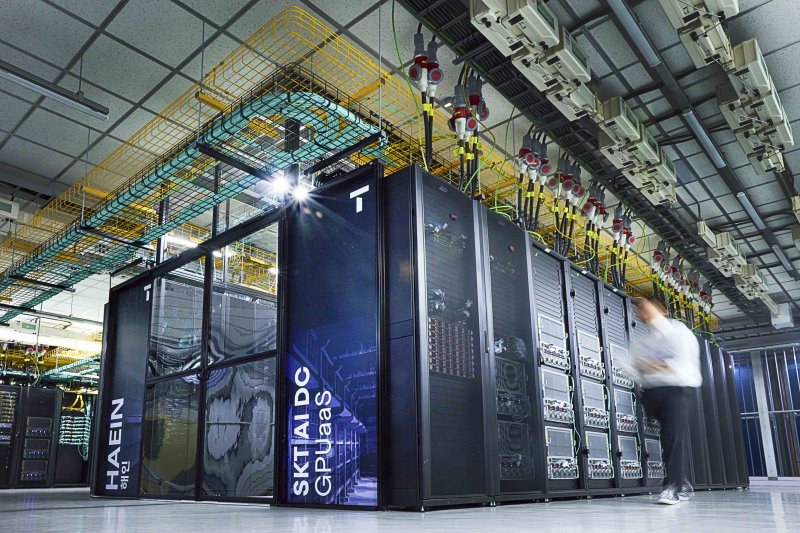Surging AI Data Centers Emerge as a New Growth Engine for the Steel Industry
- Input
- 2025-11-16 15:09:17
- Updated
- 2025-11-16 15:09:17

With the Asia-Pacific Economic Cooperation (APEC) summit in Gyeongju serving as a catalyst, collaboration with global AI giants such as Nvidia Corporation and Amazon Web Services (AWS) is taking shape, leading to expectations of a significant increase in AI Data Centers in Korea. As steel is an essential material for constructing these data centers, the steel industry is poised to benefit from this new growth opportunity.
■ Domestic AI Data Center Construction AcceleratesAccording to industry sources on the 16th, Nvidia Corporation has agreed to supply 260,000 state-of-the-art Blackwell graphics processing units (GPUs) to Korea in conjunction with APEC, which is expected to drive an increase in AI Data Centers, a core infrastructure.
SK Group and AWS announced plans to build a 100-megawatt (MW) AI Data Center in Ulsan and to establish new AI Data Centers in the Incheon and Gyeonggi regions. SK Group has also signed a memorandum of understanding (MOU) with OpenAI to construct an AI Data Center in the southwestern region of Korea. SK Telecom is pursuing a data center with a capacity of less than 50MW in Guro, Seoul, while another telecom company, LG Uplus, is building a large-scale AI Data Center in Paju, Gyeonggi Province. The government is also accelerating its National AI Computing Center project.
Steel is a core material used in the construction of these data centers. Building a hyperscale data center, which operates more than 5,000 servers and covers an area of over 10,000 square feet (about 946m2), can require up to 20,000 tons of steel.
Unlike general commercial buildings, data centers must withstand the load of servers and equipment. In addition to the building frame, large amounts of steel are used for server racks, power and cooling equipment, and security cages. Especially for AI Data Centers, which are centered on graphics processing units (GPUs) rather than central processing units (CPUs), higher power density, advanced cooling systems, and robust networks are required, demanding even more steel.■ Hyundai Steel Collaborates with AWS; Nippon Steel Corporation Makes New InvestmentsAs a result, the steel industry is showing keen interest in data centers as a next-generation growth engine. Data center operators are prioritizing the adoption of low-carbon steel due to carbon regulations, opening up a new high-value-added market for steelmakers.
In July of this year, Hyundai Steel signed a 'Strategic Framework Agreement' (SFA) with AWS to promote the use of Hyundai Steel’s low-carbon steel in AWS’s global data center construction projects across the Asia-Pacific region. Hyundai Steel is stably supplying its H-beams, certified as low-carbon products, for the construction of the first AWS data center in Korea, thereby contributing to reducing carbon emissions during the building process.
Nippon Steel Corporation, which acquired United States Steel Corporation (U.S. Steel), plans to install new production facilities at U.S. Steel’s Arkansas plant to mass-produce high-grade steel for use in U.S. data centers and other applications starting in 2028, according to Nihon Keizai Shimbun (The Nikkei). The investment is reported to be worth several trillion yen.
POSCO, a leading steel company in Korea, is closely monitoring the situation in preparation for a potential boom in data center construction.
A POSCO official stated, “AI Data Centers are large-scale infrastructures that house high-performance servers and network equipment, so demand for high-value-added steel products such as steel for power applications, Steel for Energy Storage Systems (ESS), shielded steel plate, and structural steel is expected to grow. Although data centers currently account for a limited share of total steel demand, the market is projected to expand as the government pursues plans to enhance AI infrastructure. POSCO will review its response to this market in the mid- to long-term.”
solidkjy@fnnews.com Gu Ja-yoon Reporter